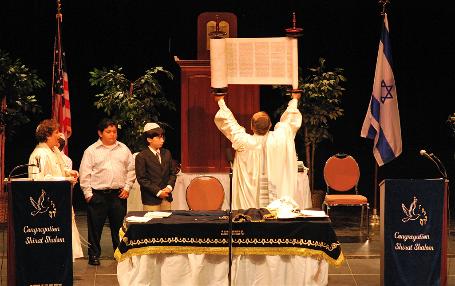| שירת שלום Song of Peace |
- Home
- High Holy Days

Reform Services Led by
Rabbi David Degani
Cantor Lee Degani
Inspiring, Uplifting & Beautiful
Olympic Heights HS Theater
Or Attend Virtually
Yom Kippur
Kol Nidre 7:30 P.M.
Morning Service 10:00 A.M.
|
High Holy Day Services
Tickets: Adults $118.00 Children 17 years & younger $36.00 or By Phone: Call 561.488.8079 NO Refunds Under Any Circumstances
|
Bring Non-perishable food items Kol Nidrei or Yom Kippur morning. |
